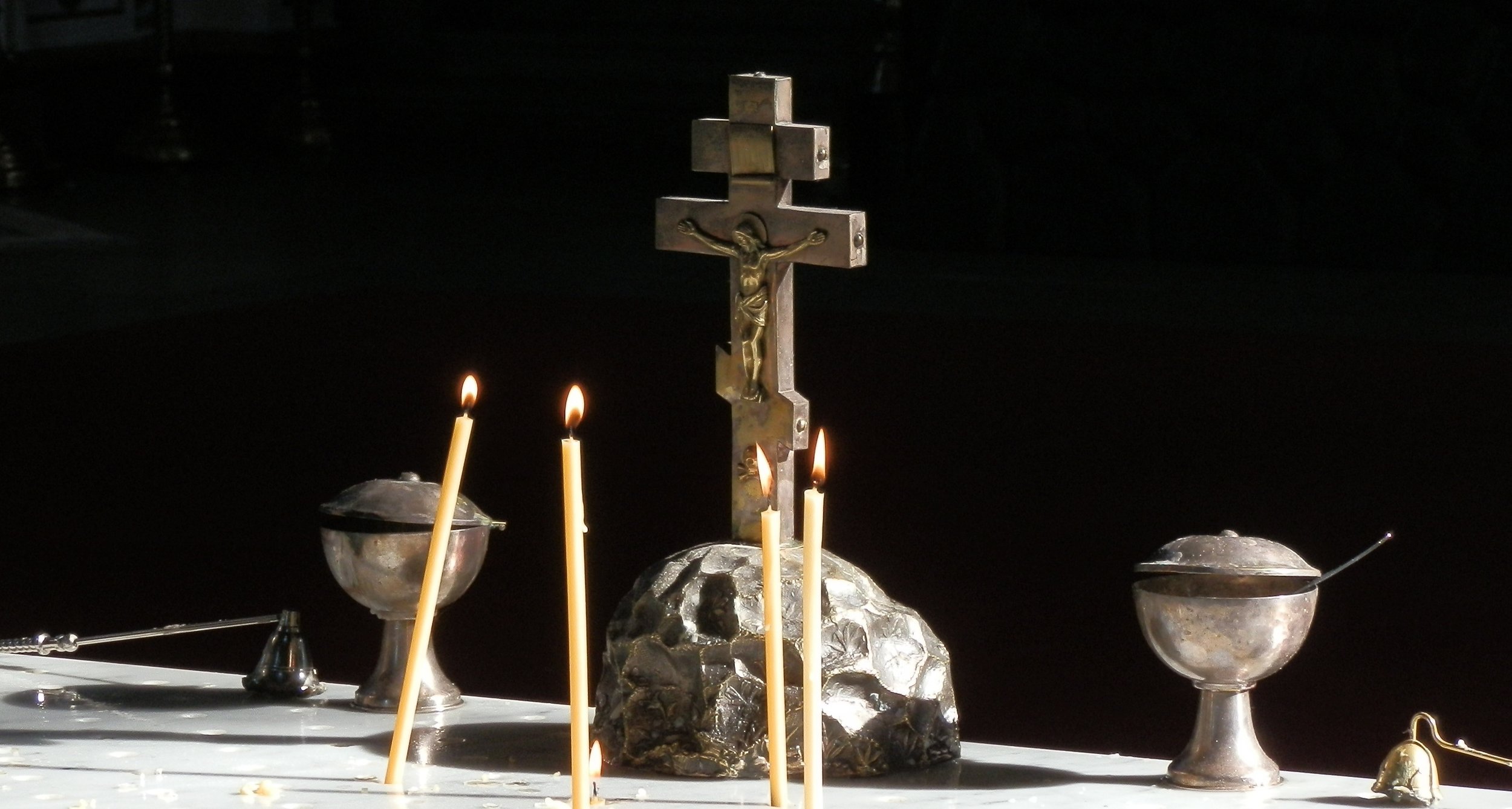Healing Atonement
Early Church: 1st to 8th Centuries
Photograph: An old clay oil lamp from Nazareth, Israel. Photo credit: Olivia Armstrong.
Introduction
These resources explore the meaning of Jesus' death, from the understanding of the Christian community in its first four hundred years, expressed in the Nicene and Chalcedonian creeds. Jesus is God's way of undoing human evil, in a personal, loving way. His death was the climax of his victorious struggle over the corruption in his own human nature. We call this "Medical Substitution," although it has gone by other names. The following clip is from our 2019 Conference: Healing Atonement.
Messages and Resources on Medical Substitutionary Atonement in the Early Church
Workbook style, with quotes and questions for personal or group discussion. Discussion points include: Who caused this mess? Jesus saves who, from what? Can a loving God have a hell? What about people who died before Jesus? Did God predestine some people to hell? Why does God want me to worship Him? What’s my motivation to obey Jesus? How does God the Father feel towards me? Should we use retributive or restorative justice? Should our economic system prioritize meritocratic-retributive or restorative justice?
Jesus Shared in Our Fallen Human Nature, That We Might Share in His Healed Human Nature
A short devotional on the Gospel of Matthew 1:18 - 25 using quotes from early church sources
C.S. Lewis' Theology of Atonement
An essay exploring Lewis' atonement theology ("medical substitution") and dependence on Irenaeus and Athanasius, submitted originally as a final paper to Dr. Gary Deddo for his class, The Theological Thought of C.S. Lewis.
Penal Substitution vs. Medical Substitution: A Historical Comparison
An analysis of the atonement theology ("medical substitution") of early church theologians, including Ignatius of Antioch, Irenaeus of Lyons, the Odes of Solomon, Justin Martyr of Rome, Melito of Sardis, Tertullian of Carthage, Methodius of Olympus, Athanasius of Alexandria (paper in progress to include later theologians, bishops, and councils).
The Council of Nicaea, the Origin of “the Trinity,” and the Limitations of Human Language
Slides of a presentation given October 30, 2021 to the Reconstruction class. This presentation covers the conceptual and linguistic factors that led to the need to explain the Father-Son relation at the Council of Nicaea, the anti-Nicene reaction, Athanasius’ leadership advocating a pro-Nicene position, and the articulation of the Constantinopolitan revision of the Creed in 381 AD.
The Council of Nicaea, the Origin of "the Trinity," and the Role of Political Power
Slides of a presentation on the political history of the Council of Nicaea in 325 AD, and its later political significance.
A sprawling discussion on Facebook, Dec 25, 2020 that started with a quote by Athanasius, explores God’s activities in both the Old Testament and in Christ, shows the importance of including “human nature” in the atonement and not just “human personhood,” and “human desires” in salvation and not just “human deeds.”
Sources of Atonement Theology: Early Church
Clement of Rome (died 99/101 AD)
Ignatius of Antioch (c.35 - c.107 AD)
Odes of Solomon (pre-125 AD)
Epistle to Diognetus (late 1st - 2nd century)
Justin Martyr of Rome (c.100 - c.165 AD)
Irenaeus of Lyons (c.130 - 202 AD)
Clement of Alexandria (c.150 - 215 AD)
Melito of Sardis (died 180 AD)
Tertullian of Carthage (c.155 - c.240 AD)
Origen of Alexandria (c.184 - c.253 AD)
Gregory ‘the Wonder-Worker’ of Neocaesarea (c.213 - 270 AD)
Methodius of Olympus (died 311 AD)
Lactantius of Rome (c.250 - c.325 AD)
Jacob of Nisibis (died 338 or 350 AD)
Eusebius of Caesarea (c.260 - c.340 AD)
Aphrahat the Persian (c.280 - c.345 AD)
The Councils of Nicaea and Constantinople (325 AD, 381 AD)
Athanasius of Alexandria (c.298 - 373 AD)
Ephrem the Syrian (c.306 - 373 AD)
Hilary of Poitiers (c.310 - 367 AD)
Epiphanius of Salamis (315 - 405 AD)
Cyril of Jerusalem (315 - 386 AD)
Gregory of Nazianzus (329 - 389 AD)
Basil of Caesarea (330 - 379 AD)
Gregory of Nyssa (c.335 - 395 AD)
Ambrose of Milan (340 - 397 AD)
John Chrysostom of Constantinople (c.349 - 407 AD)
Augustine of Hippo (354 - 430 AD)
John Cassian (c.360 - c.435 AD)
Cyril of Alexandria (c.376 - 444 AD)
Theodoret of Cyrus (c.393 - c.458 AD)
Prosper of Aquitaine (c.390 - c.455 AD)
Leo of Rome (c.400 - c.461 AD)
Jacob of Serug (c.451 - 521 AD)
Pseudo-Macarius (4th - 6th centuries AD)
Maximus the Confessor (c.580 - 662 AD)
John of Damascus (c.675 - 749 AD)
Sources of Atonement Theology
These resources explore the foundation of “Medical Substitution” as the best understanding of the Bible, and the original understanding of the church. There are also links to books, web articles, etc. from representatives of the three broad Christian traditions.





